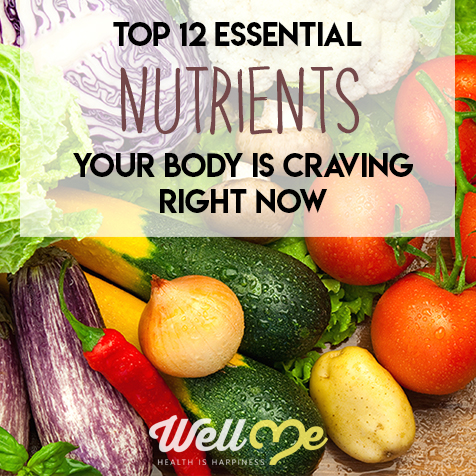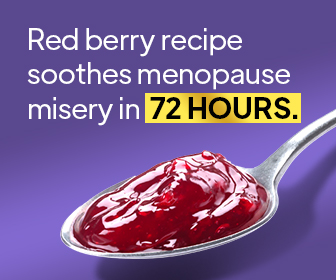All you have to do is walk through the checkout line at your local grocery store to see all kinds of conflicting advice about essential nutrients, weight loss, and more.
One magazine tells you to count calories and cut carbs while another tells you slashing your fat consumption and sipping on green smoothies is the answer. How do you know which claims are founded in science and which are not? How do you know whose advice to follow?
The truth is that there is no exact formula for health and wellness. In reality, it’s all about balance and doing what’s right for your body. This isn’t to say, however, that humans as a whole don’t have specific nutritional needs. We do!
In this article, you’re going to learn about the top twelve essential nutrients your body needs to thrive. What you do with this information is up to you!
Macro, Micro – What’s the Difference?

Before getting into the details of exactly which essential nutrients your body needs, you need to understand the basics of nutrition. Let’s start with the definition of the word “nutrient.”
According to the Oxford English Dictionary, a nutrient is “a substance that provides nourishment essential for the maintenance of life and for growth.” That’s easy enough to understand, right? But there are different kinds of nutrients, so how do you tell them apart?
Nutrients can be broken into two main categories: macronutrients and micronutrients. Macronutrients are the nutrients your body needs in large amounts. They are the nutrients that provide energy in the form of calories. You know of these nutrients as carbohydrate, protein, and fat. Some might also consider water a macronutrient because it is essential for life, even though it doesn’t contain any calories. Micronutrients are the nutrients your body needs in lesser amounts – vitamins and minerals, to be specific.[1]
Now that you know what nutrients are, which of them does your body needs most? Let’s take a look at the top 12 most essential nutrients your body needs and where you can get them.
The Top 12 Essential Nutrients Your Body Needs
As you can probably guess, the three macronutrients are the top three most essential nutrients for life. You can also throw water into that category. But what about micronutrients? Which vitamins and minerals are the most important? Keep reading to find out.
Nutrient #1: Water
Though it may not technically be one of the essential nutrients in the same way that carbohydrate is or that vitamins and minerals are, water is required for life.

The human body can survive for a surprisingly long time without food. Without water, however, your health will rapidly start to deteriorate after just a few days. In fact, there is a case of a 27-year-old man surviving for 382 days without food – the details of this study, completed in 1973, are published in the Postgraduate Medical Journal.[2]
But why is water so important? It plays an important role in digestion, helping your body to excrete wastes, and it helps with the regulation of your body temperature as well. It also helps to protect your tissues and it lubricates your joints. Inadequate water intake, or dehydration, can lead to fatigue, dizziness, rapid heartbeat, and even coma or death.
How Much Do You Need?
According to the National Academies of Sciences, Engineering, and Medicine, daily water requirements for adult men are about 15.5 cups and, for adult women, about 11.5 cups.
Fun Fact: Water accounts for about 70% of your total body mass and 90% of your brain mass. On any given day, you lose about 8 to 12 cups of water through urine, sweat, and respiration. If you don’t replace the water lost, you’ll experience symptoms of dehydration that can become very severe. After losing 1-2% water, you’ll start to feel thirsty and at 5% you’ll start to feel tired. After losing 10%, you may experience blurred vision and disorientation. At 12% to 20% water loss, your body will no longer be able to function and you will die.
Nutrient #2: Carbohydrate
If you are a serial dieter, you may think of carbohydrates (or “carbs”) as the enemy when they are, in fact, a very important nutrient.

Carbohydrates are your body’s primary source of energy and they are very important for healthy function, for that reason. In addition to providing your cells with energy, carbohydrates help stabilize your blood sugar and preserve muscle mass.
There are different kinds of carbohydrates, primarily simple carbs and complex carbs. Simple carbohydrates can be broken down quickly and easily by the body and the glucose hits your bloodstream almost immediately, causing a spike in blood sugar. Examples of simple carbohydrates include white bread, white rice, and white sugar. Complex carbohydrates take longer to break down so they don’t cause such a blood sugar spike – they can be found in whole grains, fruits, and vegetables.
How Much Do You Need?
Dietary requirements for the three macronutrients vary but the Acceptable Macronutrient Distribution Range (AMDR) set forth by the USDA recommends a dietary intake between 45% and 65% carbohydrates for both adult men and women.[3]
Nutrient #3: Fat
Again, if you have ever struggled to lose weight, you may be of the opinion that fat is bad. In reality, it is just as much a source of energy as any other macronutrient and it is essential for a healthy and balanced diet.

In addition to providing your body with an essential source of energy, fat helps to improve the absorption of certain vitamins. It also helps to cushion your internal organs, protecting them from damage. Some fats are healthier than others, such as unsaturated fats like olive oil, or healthy saturated fats like coconut oil and avocado.
The fats you want to avoid are trans fats – the kind found in processed foods and baked goods. As a general rule, you should avoid hydrogenated vegetable oils.
How Much Do You Need?
Dietary requirements for the three macronutrients vary but the Acceptable Macronutrient Distribution Range (AMDR) set forth by the USDA recommends a dietary intake between 20% and 35% carbohydrates for both adult men and women.
Nutrient #4: Protein
As you may know, protein is made up of amino acids which are sometimes called the “building blocks” of protein. There are twenty different amino acids, nine of which your body cannot produce (or synthesize). These are essential amino acids because they must come from your diet.

In addition to being building blocks for muscle, amino acids also play a role in creating hormones and enzymes. Protein can be found most readily in animal foods like meat, eggs, and dairy products but there are also plant-based proteins you can get from nuts, seeds and beans.
One thing to keep in mind about protein is that animal products are complete proteins while plant proteins are not. A “complete” protein is simply one that contains all nine essential amino acids:
- Histidine
- Isoleucine
- Leucine
- Lysine
- Methionine
- Phenylalanine
- Threonine
- Tryptophan
- Valine
The best way to ensure that you meet your daily needs for protein is to consume a variety of animal and plant proteins. By eating these foods, you’ll get plenty of protein and other essential nutrients.
How Much Do You Need?
Dietary requirements for the three macronutrients vary but the Acceptable Macronutrient Distribution Range (AMDR) set forth by the USDA recommends a dietary intake between 10% and 35% carbohydrates for both adult men and women.
Nutrient #5: Vitamins
As you well know, there are many different types of vitamins but some of them are more important than others. Here are the vitamins you need most:
- Vitamin A
- Vitamin C
- Vitamin D
- Vitamin E
- Vitamin K
- B Vitamins
Each of these essential nutrients plays a specific role in supporting total-body health and wellness.

Vitamin A is important for eye and skin health while Vitamin C promotes strong bones and teeth. Vitamin E is important for blood health and it protects your cell membranes from damage. Vitamin K supports healthy blood clotting.
Because these vitamins can be found in many different foods, your best bet to include them all in your diet is to eat a variety of different whole foods.
How Much Do You Need?
Individual needs may vary but, generally speaking, the daily recommended allowance for these vitamins is as follows:
- Vitamin A = 600 ug
- Vitamin C = 75 mg
- Vitamin E = 10 mg
- Vitamin K = 80 ug
Nutrient #6: Minerals
As is true for vitamins, there are many different minerals that can be found in food but the ones your body needs most are:
- Calcium
- Chloride
- Iron
- Magnesium
- Phosphorus
- Potassium
- Sodium
- Trace minerals
Sodium, potassium, magnesium, and calcium have their own sections. Iron is important for healthy blood production and phosphorus works with calcium to strengthen your bones and teeth.
Like vitamins, these minerals can be found in many different foods. So, to make sure they are included in your diet, be sure to eat a variety of whole foods.
How Much Do You Need?
Individual needs may vary but, generally speaking, the daily recommended allowance for these minerals is as follows:
- Chloride = 3,400 mg
- Iron = 15 mg
- Phosphorus = 1,000 mg
Nutrient #7: Sodium
You may be surprised to see sodium on this list of essential nutrients because it gets a bad rap for contributing to high blood pressure and poor cardiovascular health.

While excess sodium can cause health problems, this mineral is still part of a healthy and balanced diet. Your body needs sodium to regulate the fluid balance in and around your cells. Plus it helps to support proper nerve and muscle function. Sodium can be found naturally in foods like nuts, seeds, vegetables, legumes, meats, and grains – getting your sodium from these sources is healthier than loading up your meals with table salt.
How Much Do You Need?
The American Heart Association recommends a maximum of 2,300mg sodium per day or around 1,500mg per day for individuals at risk for heart disease.[4]
Nutrient #8: Potassium
You may not know it, but potassium is actually a kind of electrolyte and it is very important for healthy bodily function.
Potassium plays a role in protein synthesis and it helps your body utilize the energy in carbohydrates. This mineral is essential for heart health, muscle activity, and pH balance. It helps to keep your blood from becoming too acidic. Though you probably think of bananas first when it comes to food sources of potassium, this mineral can also be found in tomatoes, spinach, avocado, potatoes, salmon, and sweet potatoes.
How Much Do You Need?
For adults over the age of 19, daily recommendations for potassium intake are about 4.7 grams per day. This number increases to about 5.1 g per day for pregnant and lactating women.
Nutrient #9: Magnesium
Though you probably think of calcium as the most important mineral for bone health, magnesium is almost as important. More than 50% of your body’s magnesium is concentrated in the bones.
This mineral plays a role in many bodily processes including energy production, or RNA synthesis. A wide variety of foods contain magnesium, including leafy green vegetables like spinach as well as nuts, seeds, legumes, and whole grains. Generally speaking, foods that are rich in dietary fiber also tend to be rich in magnesium.
How Much Do You Need?
For adult males 19 to 30 years, daily magnesium recommendations are 400mg – that number increases to 420mg after 31 years of age. Women aged 14 to 18 years need 360mg of magnesium daily, but that need decreases slightly to 310 mg between ages 19 and 30. After that, daily recommendations increase slightly for women over the age of 31.
Fun Fact: According to the National Institutes of Health, magnesium is the most abundant mineral in the body. It plays a role in more than 300 different biological and enzymatic processes ranging from protein synthesis and muscle function to blood sugar control and blood pressure regulation
Nutrient #10: Calcium

More than 99% of the calcium in your body can be found in your bones, so you can see why this nutrient is so important.
In addition to supporting bone health, calcium also plays a role in muscle contraction, circulation, hormone secretion and nerve function. Most dairy products like milk, cheese, and yogurt contain this nutrient, as well as certain vegetables like kale, broccoli, and spinach. Fortified grains often contain calcium, though the natural forms contain relatively little, and calcium is often added to fruit juices and other beverages.
Requirements for this nutrient change over the course of your life because the rate at which your bones remodel changes with age. When you are young, the formation rate of new bone exceeds the rate of resorption but when you get older, bone starts to break down more quickly. Inadequate calcium intake at this age can increase your risk for osteoporosis.
How Much Do You Need?
Adult men between the ages of 19 and 70 require about 1,000mg calcium per day while men over the age of 71 require 1,200mg. Women aged 19 to 50 need 1,000mg of calcium per day but those needs increase to 1,200mg by the age of 51 and remain steady from there.[5]
Nutrient #11: Vitamin D
Though it was technically included in the list of vitamins mentioned as Nutrient #5, Vitamin D is particularly important for balanced nutrition and optimal health.
Vitamin D is also known as the “sunshine vitamin.” When the skin is exposed to ultraviolet rays from the sun, it produces vitamin D. You can also find Vitamin D in fatty fish like salmon, tuna, and mackerel as well as fish liver oils. There is a small amount of Vitamin D in certain cheeses, beef liver, and egg yolks, as well as mushrooms and certain fortified foods like cereal.
What makes Vitamin D so important is the fact that it is necessary to help your body properly absorb and utilize calcium which, as you already know, is essential for bone health. This vitamin may also play a role in immune health and healthy muscle function.
How Much Do You Need?
According to the NIH, men and women age 1 year through 70 years need about 600 IU (or 15 micrograms) of Vitamin D per day. After age 70, your needs increase to 800 IU (or 20 micrograms).[6]
Nutrient #12: Omega-3 Fatty Acids

You already know that fat is one of the top three essential nutrients and that it is a macronutrient. What you may not realize, however, is that there are many different types of fat.
Omega-3 fatty acids are a specific type of polyunsaturated fat and an essential fatty acid. What this means is that your body is incapable of synthesizing this type of fatty acid so it needs to come from your diet. Luckily, there are plenty of foods rich in omega-3s such as fatty fish like mackerel, tuna, and salmon as well as chia seeds, flaxseed, and walnuts. Eating one to two servings of fish per week can help you reach your omega-3 recommendations, or you can take a fish oil supplement.
How Much Do You Need?
Daily recommendations for omega-3 intake are about 1.6 grams for men over 14 years of age and about 1.1 grams for women aged 14 and older. Children have slightly lower needs and women who are pregnant or lactating have higher needs.[7]
Summary: What Should You Do Now?
Now that you have a better understanding of what essential nutrients are and which ones your body needs most, what do you do with all that information?
First and foremost, you should take a closer look at your diet to see whether you’re getting enough of the foods that contain these twelve essential nutrients. You don’t necessarily need to measure and track every bit of food that passes through your lips. You should, however, pay closer attention to what you eat over the next week or so to get an idea.
Once you’ve taken the time to observe your own dietary habits, you should have a pretty good idea whether you are on track for getting your daily dose of essential nutrients or not. If you aren’t, think about some of the ways you might be able to boost your intake of essential nutrients.

Action Steps: Boost Your Intake of Essential Nutrients
- Pay attention to the kinds of food you eat on a daily basis for the next 5 to 7 days. Pay special attention to the whole foods like fresh fruits and veggies in your diet.
- Evaluate the quality of your diet. How often do you eat processed foods versus whole foods? Are you getting enough fruits and vegetables?
- Review the list above, paying special attention to which foods contain which essential nutrients. Start making an effort to get more of those foods in your diet.
- If you’re still having trouble reaching your daily recommended allowance for essential nutrients, try adding a fresh fruit and vegetable smoothie to your daily diet or start taking a high-quality multivitamin.
The simple act of paying closer attention to the kinds of food you do and do not eat can provide a great deal of insight about the quality of your diet and your health. If you are honest with yourself, you’ll probably have to admit that you aren’t eating as well as you could be and you may be missing out on essential nutrients. Fortunately, improving your diet is easy – just swap out some of those processed foods for healthier, more wholesome options!
If you’re not taking steps to get your daily dose of essential nutrients, you could be making other nutritional mistakes as well. Check out our guide to the top 10 dieting mistakes to see if you’re making any of them yourself.
References
- [1] https://mynutrition.wsu.edu/nutrition-basics/
- [2] https://www.ncbi.nlm.nih.gov/pmc/articles/PMC2495396/
- [3] http://www.nationalacademies.org/hmd/~/media/Files/Activity%20Files/Nutrition/DRI-Tables/8_Macronutrient%20Summary.pdf
- [4] http://www.heart.org/HEARTORG/Conditions/HighBloodPressure/PreventionTreatmentofHighBloodPressure/Shaking-the-Salt-Habit_UCM_303241_Article.jsp#.Wfojn2hSwuU
- [5] https://ods.od.nih.gov/factsheets/Calcium-HealthProfessional/
- [6] https://ods.od.nih.gov/factsheets/VitaminD-HealthProfessional/
- [7] https://ods.od.nih.gov/factsheets/Omega3FattyAcids-HealthProfessional/
- Source: “Human Need for Water.” Ciese.org. <http://www.ciese.org/curriculum/purification/lp_intro.content.html>
- Source: “Magnesium.” NIH. <https://ods.od.nih.gov/factsheets/Magnesium-HealthProfessional/>








